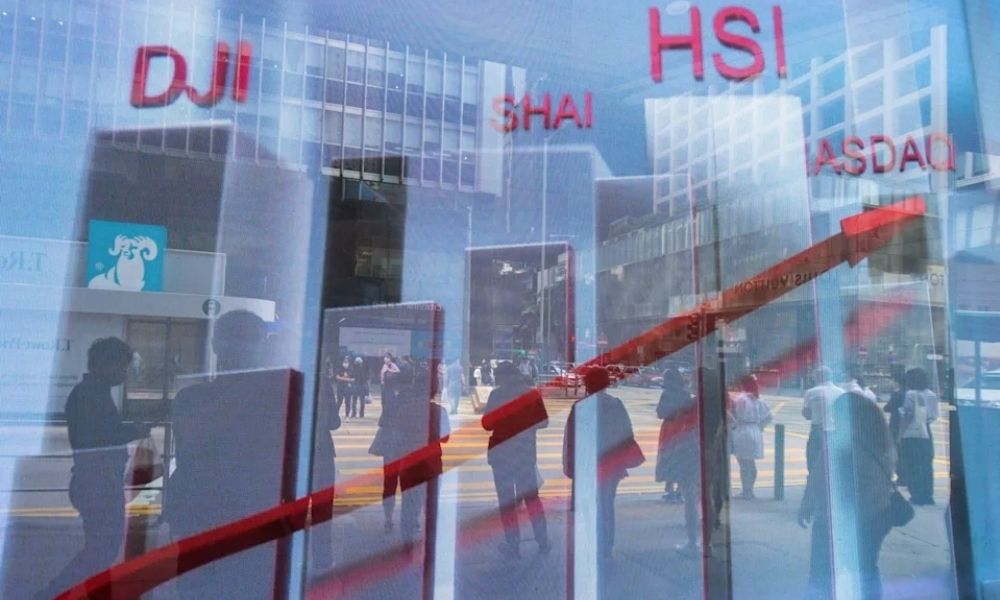
Chinese stocks in Hong Kong fell after a historic two-day surge as investors assessed the feasibility of Beijing’s pledge to stabilize financial markets and any risks stemming from its close ties with Russia.
The Hang Seng China Enterprises Index lost as much as 3.5% on Friday, dragged down by a pullback in tech and property stocks. The gauge rose 21% in the previous two sessions, the most since 1998. Tech heavyweights Tencent Holdings Ltd. and Alibaba Group Holding Ltd. slid after two-day gains of at least 30% each.
Investors are taking a step back after Beijing’s concerted effort to shore up confidence brought knee-jerk jump inequities. Still weighing on their minds are risks including possible U.S. sanctions on China given its ties with Russia and their market impact. Skeptics have also sought concrete policy steps before calling an end to the route.
Investors will thus be keenly watching the planned meeting this evening between Chinese President Xi Jinping and U.S. President Joe Biden for cues. A gauge of China stocks traded in the U.S. also cooled off overnight, falling 4.6% after a 33% surge in the previous session.
“I am hopeful that the meeting between Xi and Biden will send out positive signals of soothing Sino-U.S. relations that will help stabilize market sentiment”, said Dickie Wong, executive director of research at Kingston Securities. The fall we are seeing in Hong Kong stocks “is more of a pullback from the previous two days’ significant surge,” Wong said.
China’s muted response to Russia’s invasion of Ukraine has hardened views within the U.S. administration that Xi may be moving closer to supporting Moscow as the conflict continues, according to several people familiar with the matter.
Chinese officials deny that they have tacitly backed the invasion and have rejected U.S. reports that Russia asked Beijing for financial and military assistance shortly after touching off the war, labelling their disinformation.
“These are difficult times. Traders and investors should be immediately aware of the risk this key historic phone call poses,” Clifford Bennett, chief economist at ACY Securities, wrote in a note, adding that a decision by the U.S. to impose new sanctions on China could wipe out recent stock gains. “It is a telling moment.”
Meanwhile, expectations are rising for the People’s Bank of China to soon take easing steps to spur the economy, including a cut in banks’ reserve requirements, which may aid market sentiment. A growing number of economists anticipate lenders will lower their quotes for the loan prime rate, the de facto benchmark lending rate when it’s announced by the PBOC Monday.
Investors are also closely watching China’s adjustments in its Covid restrictions. Xi has pledged to reduce the economic impact of his Covid-fighting measures, signalling a shift in a longstanding strategy that has minimized fatalities but weighed heavily on the world’s second-largest economy.
Shares on the mainland fared relatively better than those in Hong Kong, with the CSI 300 Index down 0.9% as of the mid-day lunch break, after rallying 6.4% in the previous two sessions. Hong Kong’s benchmark Hang Seng Index was down 2.5%.
The recent policy reassurance from Beijing “has come as quite a tailwind for the market. But we have to look at the implementation going forward,” Manishi Raychaudhuri, head of APAC Equity Research at BNP Paribas SA, said on Bloomberg Television. In the near term, “I don’t think we can escape from volatility,” he said.